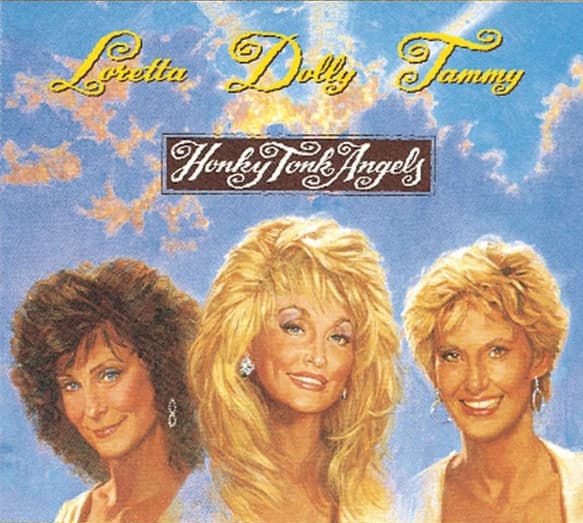
“Silver Threads and Golden Needles”: A Timeless Lament on the Passage of Love and Youth
Ah, the 1990s. For some, it was the decade of grunge and gangsta rap, a chaotic symphony of rebellion and raw emotion. But for those who grew up with the heart and soul of country music, it was a time of reunion and a celebration of legends. In 1993, three queens of the genre—Dolly Parton, Loretta Lynn, and Tammy Wynette—came together to create an album that felt less like a new release and more like a cherished family gathering: Honky Tonk Angels. And within that masterpiece, nestled like a bittersweet memory, was the song “Silver Threads and Golden Needles.”
Now, this wasn’t a new song, not by a long shot. Its roots reach back to 1956, to the pens of Dick Reynolds and Jack Rhodes. It had been covered by everyone from The Springfields and The Everly Brothers to Linda Ronstadt. But when these three titans of country music sang it, it wasn’t a cover; it was a reclamation. Their rendition wasn’t a blockbuster hit in the way some of their individual singles had been; it didn’t rocket to the top of the Hot 100 or dominate the airwaves. Instead, it found its home on the Billboard Hot Country Singles & Tracks chart, where it peaked at a respectable number 68. Its success wasn’t measured in chart positions but in the collective sigh of recognition it elicited from listeners who had lived these words.
The story behind this particular recording is as compelling as the song itself. For years, fans had dreamed of a collaboration between these three women, a holy trinity of country music. Dolly, the sassy and ambitious songwriter; Loretta, the voice of the everywoman’s struggle; and Tammy, the tear-in-your-beer queen of heartache. They were all at different stages of their careers—Dolly still a chart force, Loretta a beloved icon, and Tammy battling health issues but her voice as resonant as ever. Their coming together for the Honky Tonk Angels album was a monumental event. It wasn’t just a record; it was a statement of solidarity and a tribute to the genre they had helped build.
The song’s meaning is a poignant and timeless one. “Silver Threads and Golden Needles” is a devastatingly simple metaphor for the passage of time and the heartbreak that comes with a love that has faded. The “silver threads” represent the gray hairs of aging, and the “golden needles” are the tools of a new love interest, someone younger and more vibrant. The narrator is watching her former lover move on, dressed up in the new life and new love that has replaced her. It’s a song of resignation, of watching from the sidelines as the person you once loved is “sewn” back together by someone else. The line “You’ve got a new love and I hear she’s a good one / But she can’t sew a heart with golden needles” is a gut punch, a last, desperate claim to a shared history that the other person is ready to discard. When Dolly, Loretta, and Tammy sang it, they didn’t just sing the words; they embodied them. You could hear the years of heartache and hard-won wisdom in their voices. This wasn’t a theatrical performance; it was a shared confession, a testament to the universal pain of being left behind. For the older listener, it was a mirror reflecting their own quiet sorrows and resilient spirit. It was the sound of three women who had seen it all and were telling you, with every note, that you were not alone. It was and remains a beautiful, melancholic masterpiece.